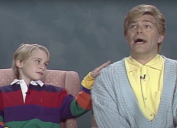Drew Barrymore Became a Legal Adult at 14—Here's What Happened Next
The actor became emancipated from her parents early in her career.

Drew Barrymore has been very open about how quickly she grew up—and that includes in the legal sense. The child star was legally emancipated from her parents when she was only 14 years old. She pursued this course of action after she had already lived in a mental health facility for a year and a half in order and received treatment for drug and alcohol abuse. By that time, Barrymore had already followed in the footsteps of her famous family members and become an actor known for roles in E.T. the Extra-Terrestrial, Firestarter, and Irreconcilable Differences.
The star had grown up mostly estranged from her father, John Drew Barrymore, and her relationship with her mother, Jaid Barrymore, was a complicated one in which Jaid treated her more like a friend than a child. Her mother did not establish appropriate boundaries for her, as Barrymore has explained.
So, after leaving the psychiatric facility, Barrymore decided to become emancipated and begin living life (and working) as an adult. Read on to find out more about the legal proceedings and what the now-48-year-old actor has shared about the experience.
READ THIS NEXT: Heather Graham's Parents Say Her Boogie Nights Role "Destroyed Their Relationship."
She has shared what led to the decision.
In her 2015 memoir, Wildflower, Barrymore explained what led to her decision to become emancipated.
"I had to part ways from my mother because we had driven our relationship into the ground," she wrote (via The Guardian). "She had lost credibility as a mother by taking me to Studio 54 (so wrong, but so fun) instead of school. And I was out of control due to working since I was 11 months old and what that had done to my childhood, which made me grow up too fast. Work was a very positive thing in my life, and sadly it had been taken away, because my mother also put me in an institution because she felt helpless."
In a May 2023 blog post, Barrymore opened up about her time at the institution and the state of mind she was in when she lived there. "I bonded with a lot of the kids, because like me, they did not know where to put their anger and they did not know how to live life anymore without the need to get high or self-destruct in some form and fashion," she shared.
During a 2019 interview with Howard Stern (warning: strong language in the clip above), she said that she's grateful for her time at the facility despite hating it at first, because she wasn't used to boundaries. "It's what I needed," she explained. "I left there, like, the most humble person you could ever imagine. They saved my life."
Her emancipation was granted and she started life as a legal adult.
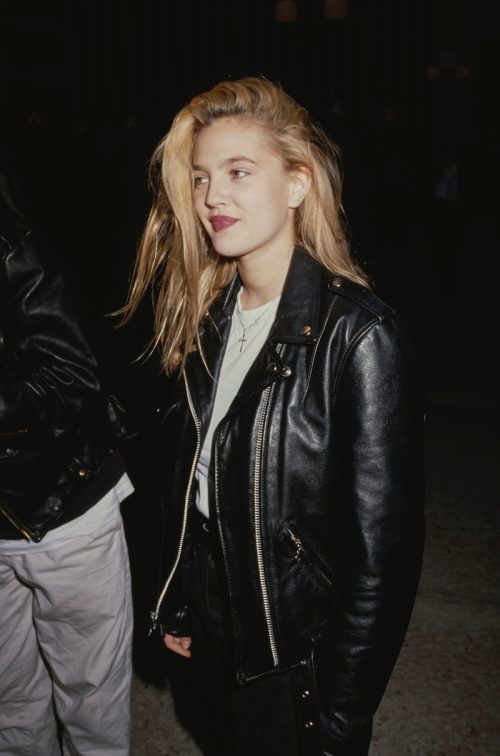
In her book, Barrymore said that when she turned 14 she "wanted to start [her] life over" and "to do things on [her] own terms." She also explained that Jaid supported the idea when she requested to be emancipated and was present at the court hearing.
"At the end of the day, the judge looked at me and said these words, which stuck with me: 'I can turn the clock forward, but I can never turn it back. Are you ready for that?'" She said yes and the judge said, "I hereby pronounce you an adult."
Barrymore wrote, "I walked out an 18-year‑old in the eyes of the state of California. This was gonna be fun."
Being considered an adult wasn't easy.
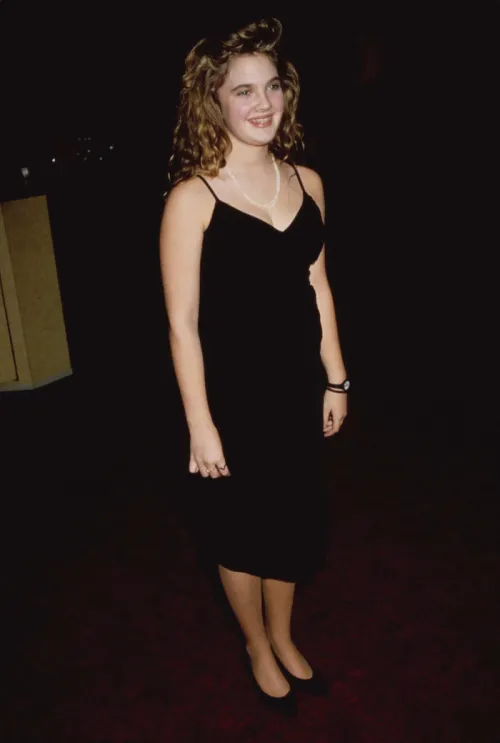
But it wasn't all good times being an adult so soon. Barrymore lived in a rundown apartment in Los Angeles, worked a job at a café that she wasn't good at, and didn't know how to do household chores, like laundry. As she tried to get her life together, she also lived for two months with musician David Crosby (her one-time sponsor) and his wife, Jan Dance, as she shared in the Stern interview.
Barrymore had two movies that were released in 1989—See You in the Morning and Far from Home—but wasn't acting when her emancipation was granted. In her book she wrote, "'I know acting,' I thought, 'but that's gone for now, and I don't know if they will have me back.' People thought I was crazy, even though I wasn't; I just grew up too fast."
She figured out life as an adult eventually. "Listening to the cats fighting in the alley, I looked out of my window and waited, as I did each morning, for the sun to come up to tell me everything was going to be OK," she wrote. "And it was."
For more celebrity news delivered right to your inbox, sign up for our daily newsletter.
Emancipation made Barrymore a legal adult in many ways.
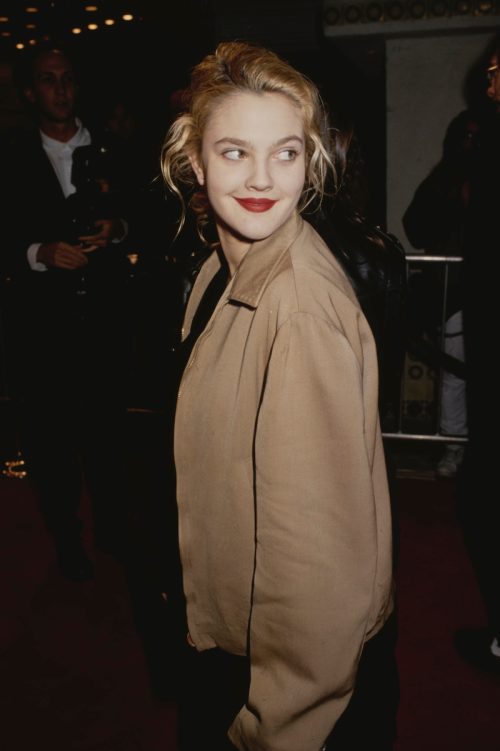
Barrymore was emancipated in 1989, so the rules might not be exactly the same as they are today, but according to the official California government website, teens who are emancipated are not technically adults but "emancipated minors." Being emancipated means that teens between the ages of 14 and 17 can live on their own, sign up for credit cards, apply for work permits, and can be sued. Their parents are no longer required to financially support them.
On the other hand, emancipated minors—at least today—still are required to attend school, still need a parent's permission to marry, and are not exempt from laws such as needing to be 18 to vote and 21 to buy or drink alcohol. Barrymore wrote in her book that she dropped out of school when she was emancipated.
She has called her emancipation "necessary."
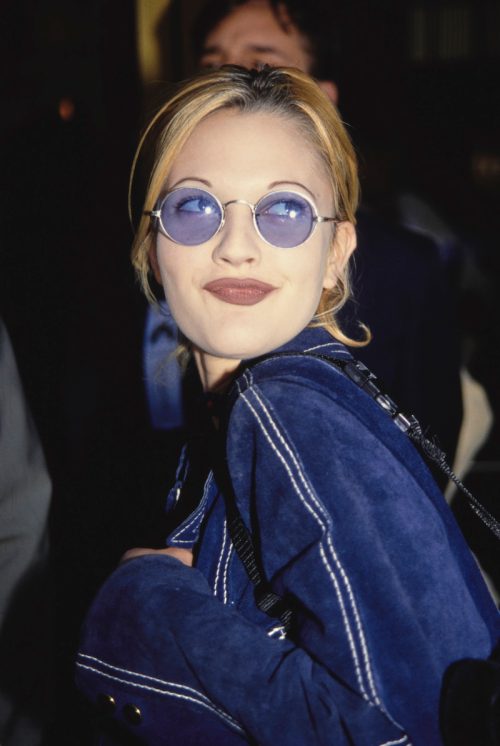
Looking back now, Barrymore still feels she made the right decision.
"When I got emancipated by the courts at 14 years old, the umbilical cord was severed, and I have not been the same since," she wrote in her May 2023 blog post. "It was necessary for me to step away and start to become my own person. And at the age of 14, my own parent."
But, she admitted that she "cannot give [herself] rave reviews," because she "drank too much" and "partied and burned the candle at every end."
"Nothing I judge," she added. "It's my history. I was just trying to figure out how to grow up and who I wanted to become."
Her childhood experience has impacted the way she parents.
Naturally, going through everything she did has had an affect on the way that Barrymore mothers her two children, nine-year-old Frankie and 10-year-old Olive, who she shares with ex-husband Will Kopelman.
"Being a mother constantly triggers everything from my own childhood now," she wrote in her blog. "I live in an often-petrified state of thinking about my past and wanting to have things different for them. I want them protected. I want them to grow up slowly. I want family around and traditions and rules and boundaries."
She's also in a healthier place with her own mother. "I will always support her," Drew told People in December 2022. "I can't turn my back on the person who gave me my life. I can't do it. It would hurt me so much. I would find it so cruel. But there are times where I've realized that our chemistry and behavior will drum up a feeling in me where I have to say, 'Okay, I need a break again.'"


